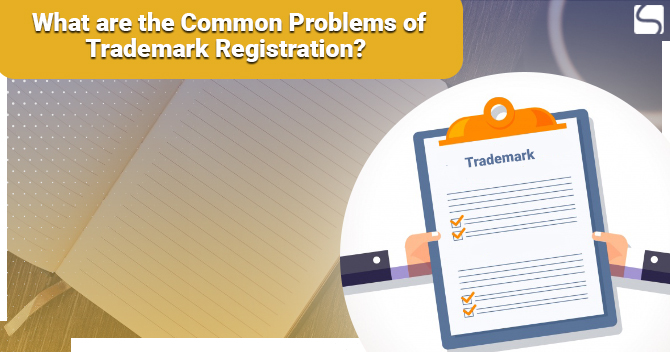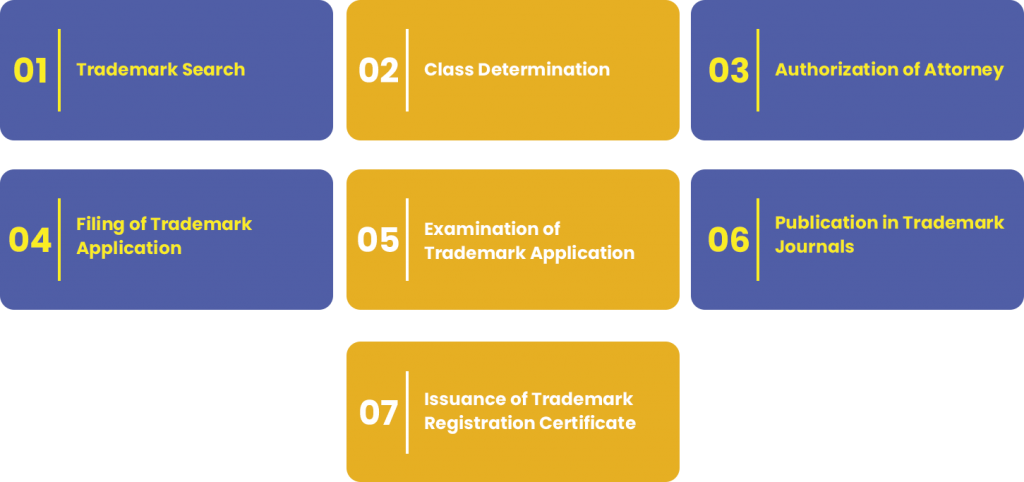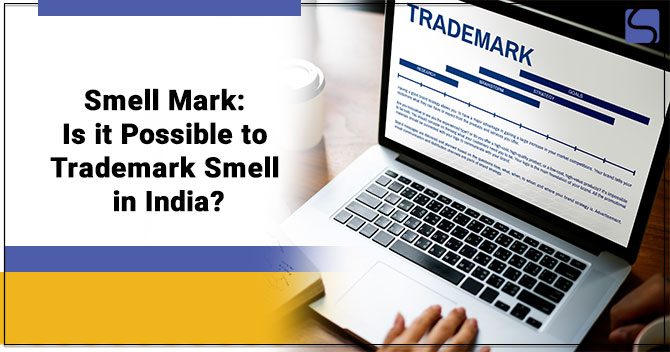What are the Common Problems of Trademark Registration?

Japsanjam Kaur Wadhera | Updated: Feb 22, 2021 | Category: News, Trademark
India is growing in the area of IPR and many businesses are now registering for trademark to protect their brands from any infringement by others. Trademark laws in India are based on the Indian Trademark Act, 1999. India has experienced a vast growth in the applications for the trademark registration in just few years. Other than that, there are also growing challenges faced during the trademark registration. This article will discuss about what are the common problems of trademark registration.
Table of Contents
Understanding Trademark Registration
The trademark registration is a long process that takes a period of more than 1 to 2 years in India. The step wise process of trademark registration is as follows:

Step 1: Trademark Search
The Registrar of Trademark maintains a register in which all the registered trademarks of India are written, and the same can be searched from to ascertain whether the applicant applying for registration of trademark is same or similar to any other trademark which has already been registered or pending before registrar for its registration. A proper search must be conducted in all classes of trademark to ascertain or discover the same.
Step 2: Class Determination
A trademark application for its registration can be filed under 45 classes of trademark. The classification is in conformity with the NICE classification. The classes from 1 to 34 are related to goods whereas the classes 35 to 45 are related to services. The application for trademark registration must be filed in the appropriate class based on the goods or service description.
Step 3: Authorization of Attorney
The application for trademark registration can be filed to the registrar of trademark with the help of a Trademark Attorney. However, to authorize such attorney, the applicant is required to issue a formal authorization in the prescribed form TM- 48. The form is in the nature of Power of Attorney and therefore it must carry a stamp duty of Rs. 100. Also, TM- 48 must also be notarized.
Step 4: Filing of Trademark Application
Once the Form TM- 48 and all the other required information is obtained, a trademark application must be filed by the applicant. The Form- TM- 1 under the trademarks act is required to be filed by the applicant with the registrar either on the website of the trademarks office or by post or in person so as to proceed further for the registration.
Step 5: Examination of Trademark Application
Once the applicant has applied for trademark registration, an examination officer is appointed by the Registry of trademark to examine it. If the examination officer is satisfied with the application, he may accept it and allow it to publish it in the Trademark Journals. However, if the examination officer is not satisfied with the application, he may raise an objection to proceed further with it.
The applicant may be issued with a refusal order under the examination report in case of refusal along with grounds mentioned. The applicant shall be a 30 days period to file a reply in response to the examination report as to why his trademark application must not be rejected and should be registered under the act.
Step 6: Publication in Trademark Journals
Once the application is approved by the examination officer, the application shall be published in the Trademark Journals for raising of any objection. If no objection is raised by any person with a period of 3 months from the date of the publication, the application shall be proceeded for the registration.
Step 7: Issuance of Trademark Registration Certificate
The final step upon the publication of the application in trademark journals is that the application shall be accepted for registration and a certificate of trademark registration shall be issued to the applicant under the seal of the trademarks registry.
Also, Read: Trademark Modification in India: Types and its Procedure
Some of the Common Problems of Trademark Registration
Some of the common problems of trademark registration are as follows:
- Two basic conditions are required for the trademark registration that is, the trademark should be capable of graphical representation and the trademark must be capable of distinguishing the goods or services of one from another. However, fulfilling these basic conditions do not always guarantee registration of the trademark as the act lays down the two further issues to be cleared before a trademark is registered, such as:
- Absolute grounds of refusal: Section 9 of the act deals with the objections that are related to the trademark itself and which cannot be registered due to its inherent problems. The absolute grounds are especially aimed at protecting the interest of the general people instead of any specific third party.
- Relative grounds of refusal: Section 11 of the act deals with relative grounds of refusal that is, a trademark cannot be registered on the grounds of being similar with the already registered mark. The purpose of this ground is to protect the rights of a party having a similar or identical mark and to safeguard the general public from any deception or confusion.
- The applicant applying for trademark registration must not apply for any similar or already registered trademark or a trademark for which a registration application is pending before the registrar. The registrar shall also consider the nature of goods, channel of trade for the goods and the purpose of the goods while deciding the similarity between the trademarks that is applied under the class 1 to 34 marked for goods. However, the registrar shall also consider the nature, purpose and use of services and normal business relationship while deciding any similarity between the trademarks under class 35 to 45 for services.
- Whether the trademark applied for registration indicates its quality, kind, purpose, quantity, geographical origin, values or the time of production of the goods or provisioning of the services or any other characteristic of goods and services.
- Whether the trademark applied for the registration indicates any mark becoming customary in the general practice of the trade. Whether the mark is of such nature that it may result into deceiving the public at large or may cause any confusion.
- Whether the trademark applied for the registration is likely to hurt the religious sentiments of any section or class of citizens of India or if it is of scandalous or obscene matter. Also the mark should not be prohibited under the Emblems and Names Act, 1950.
Conclusion
There are many common problems of trademark registration that are often faced by the applicants while registering a trademark. The application may be opposed or refused on various grounds and therefore, one must apply for trademark registration only after fulfilling all the criteria and conditions so as to register the mark without facing any hindrance.
Also, Read: International Trademark Registration – Process and Benefits














